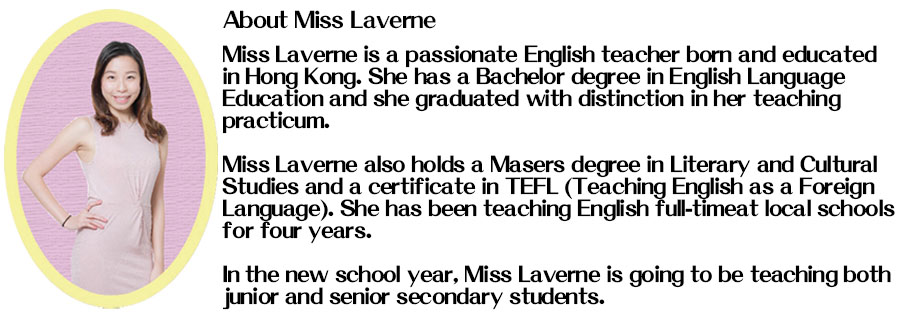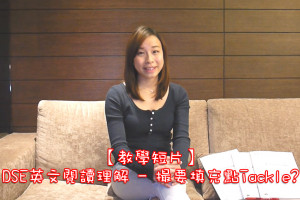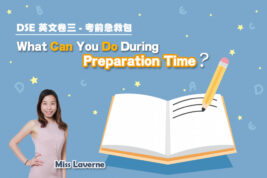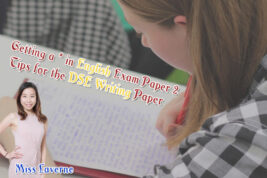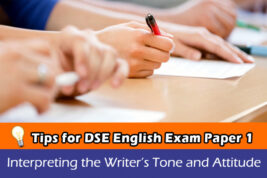Summary cloze (撮要填充) is a common question type in Paper 1. It is a reading comprehension task in which some words are omitted (刪去) from a paragraph and candidates are required to fill in the blanks with the information from the original text.
How is the question asked in Paper 1?
‘Complete the following summary using ideas given in paragraphs 7 and 8. Write ONE word for each blank. Answers must be grammatically correct.’
(HKDSE 2017 English Language Paper 1 Part A)
Candidates who perform well in this question type:
1. are able to locate the correct word in the original text.
2. are able to change the word to the correct form so that the newly formed sentence is grammatically correct.
Steps of answering summary cloze questions:
- Read the question carefully (do not go back to the original text yet).
- Locate keywords in the paragraph. Circle/highlight them.
- Look for cue words around the blank. Think:
What is the part of speech (詞性) of the word I’m looking for?
Is it a noun/verb/adjective/adverb/pronoun/preposition etc.? - Go back to the original text. Locate the answer with the help of keywords you just circle/highlight in the question.
- Before you fill in the blank, think:
If I copy the word directly from the text, is the new sentence grammatically correct?
If not, how should I change the word?
Consider the following areas:
– Tenses – e.g. create (present) → created (past tense)
– Singular/Plural form – e.g. person (sing.)→people (pl.) ; phenomena (pl.)→ phenomenon (sing.)
– Parts of speech – e.g. communicate (v.)→ communication (n.) ; possibility (n.) → possible (adj.) - Fill in the correct word and read the new sentence quickly to make sure it is grammatically correct.
Let’s try the following summary cloze questions from the past exam papers:
Practice 1
Original Text:
“How about Korean soaps?
I don’t like the drama stuff. They’re trying to play with your emotions with Cinderella
stories: beautiful girl from poor family marries rich guy.”
Question:
“Daniel doesn’t like Korean __(i)__ because he thinks the stories are too emotional. The stories are often the same, with a __(ii)__ man meeting a __(iii)__ lady who comes from a __(iv)__ background and in the end they __(v)__.”
Key:
(i) soaps/dramas
(ii) rich
(iii) beautiful
(iv) poor
(v) marry (subject verb agreement: “beautiful girl…marries rich guy” → “they marry”)
(HKDSE 2015 English Language Paper 1 Part A)
Practice 2
Original Text:
“Street food has been in decline with fewer hawker licences being issued since the 1970s.
The licences given to hawkers before then will expire when they retire or die.”
Question:
“The number of people with hawker licences has fallen because the government started to __(i)__ fewer licences in the 1970s and if a hawker __(ii)__ then the hawker licence
__(iii)__.”
Key:
(i) issue (passive voice “being issued”→ active voice “to issue”)
(ii) retires/dies (subject verb agreement: “they retire” → a hawker “retires”)
(iii) expires (verb form: The licences…”will expire” → the hawker licence “expires”)
(HKDSE 2016 English Language Paper 1 Part B1)
Practice 3
Original Text:
“For Millennials, wellness is a daily, active pursuit. They’re exercising more, eating smarter and smoking less than previous generations.”
Question:
“They do more __(i)__, don’t __(ii)__ as much…”
Key:
(i) exercise(s) (part of speech: verb → noun)
(ii) smoke (change of verb form: “smoking”→ “smoke”)
(HKDSE 2017 English Language Paper 1 Part B1)
Reminders for candidates:
- The word/sentence order in the new paragraph might be different from the original text.
- Write one word for each blank only. Hyphenated words (e.g. high-tech, life-size, well-educated) are counted as one word.
- No marks for grammatically wrong answers.
